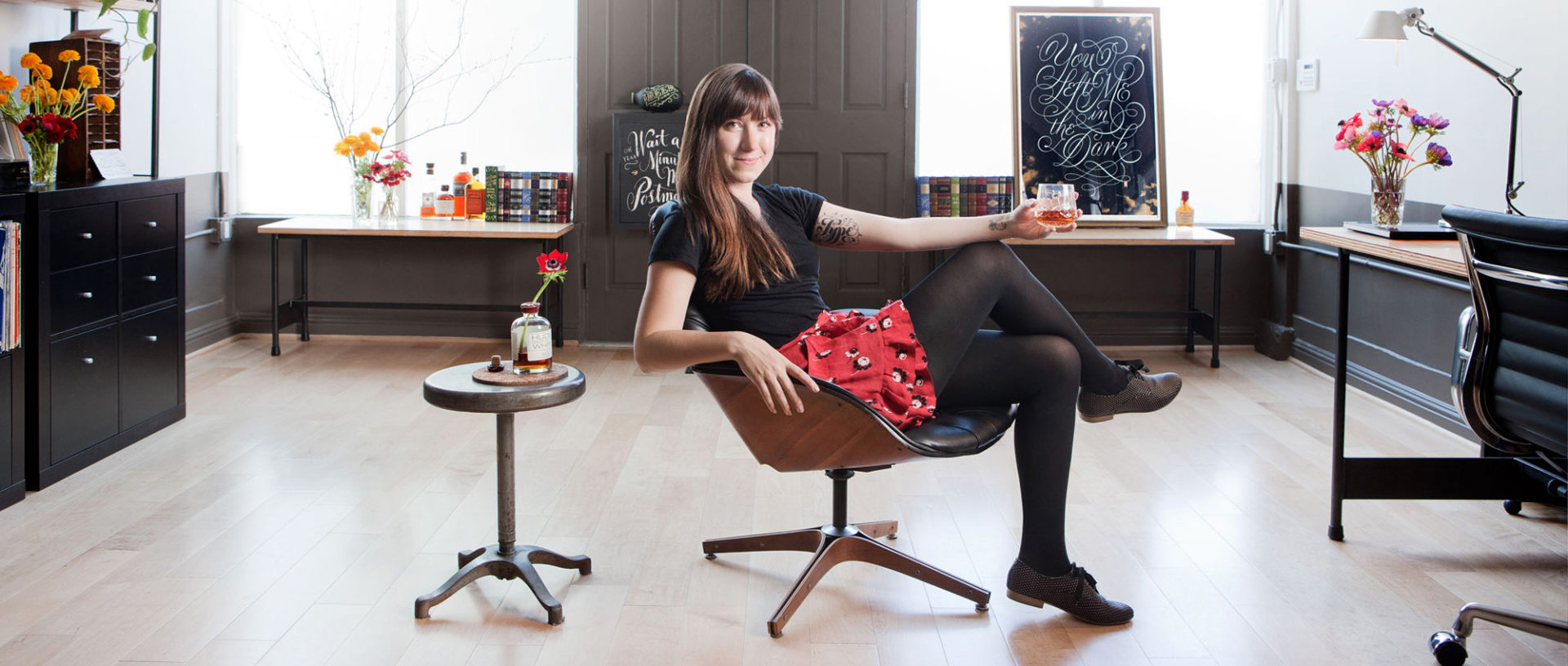Before renowned letterer and illustrator Jessica Hische took the podium, Dan Brawner, the chair of the Graphic Design Department at Watkins College of Art, Design, and Film, introduced her with a laundry list of the notable clients she has worked with – including a few you may have heard of: Target, Nike, Wes Anderson, Penguin Books, Neiman Marcus, and Starbucks.
If you think you are unfamiliar with her work, take a look at her website: Jessica Hische. You’ll likely find that you know her after all.
Jessica came strong during her talk as a “Visiting Artist” at Watkins College. Offering attendees a presentation sprinkled with profanities and pregnancy references, she gave us valuable insight as a creative professional who has made her young career an enormously successful one. Though the talk was obviously (and appropriately) geared towards students, the auditorium with filled with not only students but also faculty and professionals anxious to hear about how this incredible artist has made her way.
She shared important advice on self-improvement and encouraged the entire room by telling us “It’s ok to say ‘I’m really proud of where I am today.” (With the caveat that we continue striving to improve beyond that acknowledgment). We saw completed works, process highlights, and even some works in progress, but towards the end of her little-over-an-hour talk, she implored us to ask ourselves two questions as we build our portfolios/careers/businesses.
First, “What do I bring to the table that few people can?”
Second, “What should I take on and what should I delegate?”
So I sat there, in the small auditorium at my alma mater, reflecting on these questions. The second question is one that I grapple with daily – especially as I near the birth of my second child. Where are my unique strengths and skills best put to use for my company? Delegation is hard, but such a profoundly necessary part of growing a business. What are the reasons to delegate tasks? It’s more than just maximizing profits, or bringing on support for projects that are outside of your own skillset (or, as Jessica calls it, “your jam”). It’s about creating the best product – elevating the entire experience piece by piece. It’s about collaborating with a team of people who have all asked themselves what they bring to the table.
By delegating tasks, we’re able to create more and, more importantly, better results. We are optimizing our processes and creating stronger experiences by having people doing only the work that they are passionate about, rather than work they have to do to complete a job. By delegating tasks appropriately, we have each portion of a given project broken down into parts. Throughout the process, the parts are created, passed along and added to. Upon completion of a project, we are left with an end product that is the best and most effective that it can be.
Asking ourselves these questions is a good reminder, not only that we don’t have to do it all, but that we shouldn’t. We should build teams that put to use the unique passions and proficiencies of specialists who have honed their crafts in order to best serve our clients, team members, and ourselves as creators.
